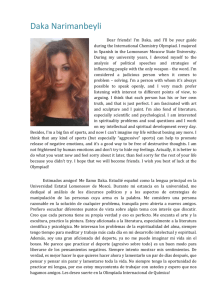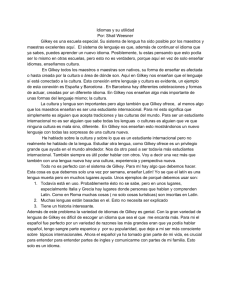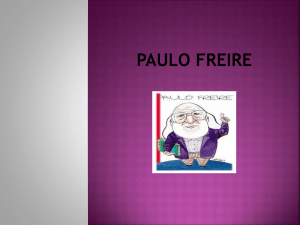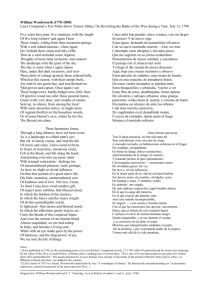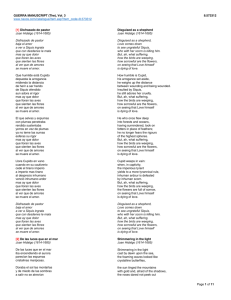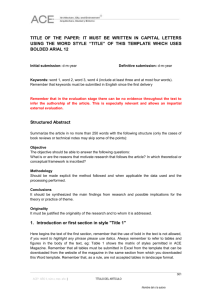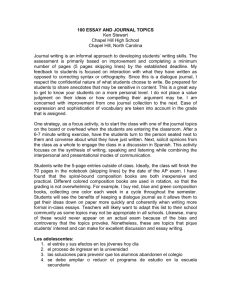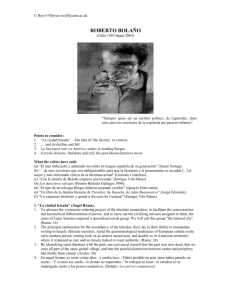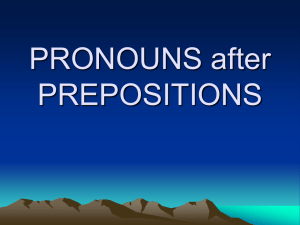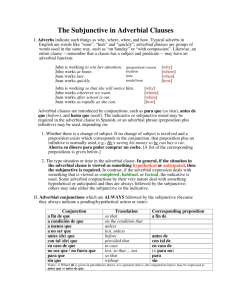Spanish Poetry of the Golden Age
advertisement
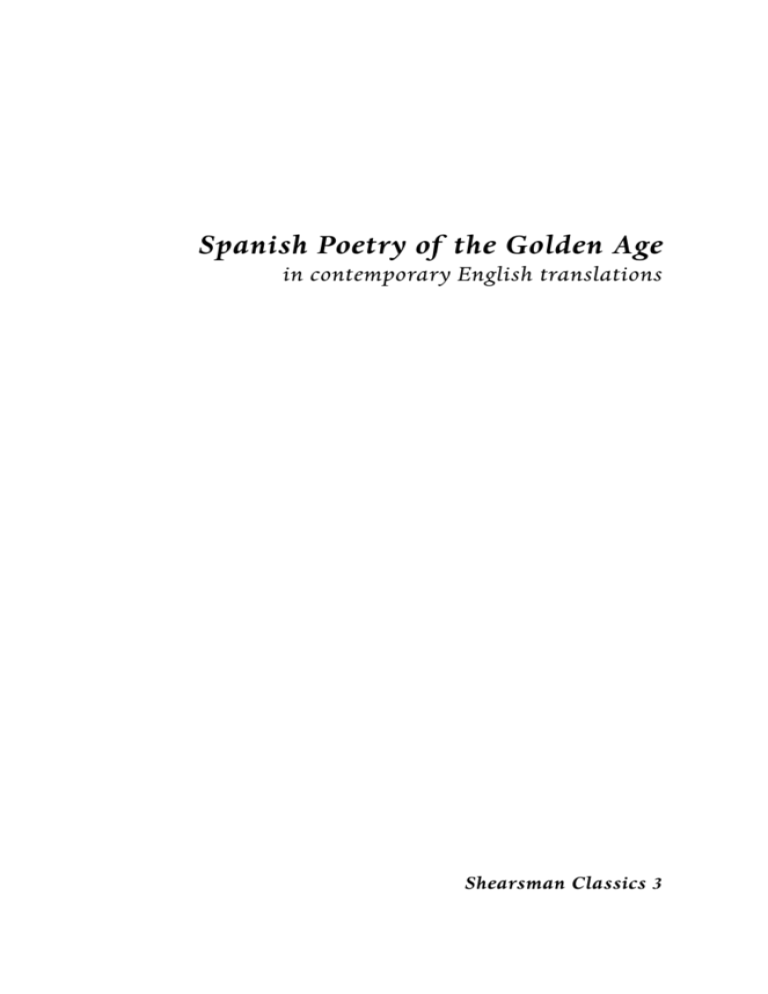
Spanish Poetry of the Golden Age in contemporary English translations Shearsman Classics 3 Other titles in the Shearsman Classics series: 1. Poets of Devon and Cornwall, from Barclay to Coleridge 2. Robert Herrick: Selected Poems Forthcoming in the same series: Mary, Lady Chudleigh: Selected Poems William Strode: Selected Poems Sir Thomas Wyatt: Selected Poems S p a n i s h Po e t r y of t h e G o l d e n Age in contemporary English translations Selected & edited by Tony Frazer Shear sman Book s Exeter First published in the United Kingdom in 2008 by Shearsman Books Ltd 58 Velwell Road Exeter EX4 4LD www.shearsman.com ISBN 978-1-905700-69-1 Introduction, notes, and editorial matter copyright © Shearsman Books Ltd, 2008. Contents Introduction 6 Juan Boscán 8 Garcilaso de la Vega 26 Jorge de Montemayor 32 Miguel de Cervantes 36 Bartolomé Leonardo de Argensola & Lupercio Leonardo de Argensola 40 Luis de Góngora y Argote 50 Francisco de Quevedo 92 Antonio Hurtado de Mendoza 114 Juan Pérez de Montalbán 120 Others 122 Biographical Notes: Authors 126 Biographical Notes: Translators 132 Selected Bibliography 137 5 Introduction This is an unusual book: anthologies of classic poetry in translation are somewhat rare, and anthologies of period translations are even rarer. This compilation has its origins in my dissatisfaction with most modern translations of the poets represented here—not that these are particularly deficient: some indeed are excellent, such as those by regular Shearsman translator, Michael Smith. My problem lies in the fact that it is well-nigh impossible to translate the work of poets such as Góngora and Quevedo today in formal verse without sounding as if one is stuck uncomfortably between eras. Finding Sir Richard Fanshawe’s almost-contemporary translations of Góngora and the Argensola brothers was thus something of a revelation. This led to further exploration, and the subsequent addition of the other translations that now accompany Fanshawe’s in this volume. Thomas Stanley and Philip Ayres, while not the equal of Fanshawe, still offer us splendid versions of the original poems, even when they abandon their literal sense. Translation tends to be a poor relation in modern academia, and the more so historic translation. Departments of Hispanic Studies are rarely interested in old English translations of classic Spanish texts, or in their reception. By the same token, English Literature departments are rarely interested in translations from other languages, regarding them as secondary creations, rarely worthy of closer study—no doubt partly because specialists in English Literature rarely have a thorough knowledge of other languages or, indeed, their classic literatures. At the time these translations were made—over roughly a onehundred-year span—England and Spain were constantly in conflict: Spain was the most powerful nation, and the richest nation in the western world, possessor of the largest empire, and militantly Catholic. England was an upstart mercantile power, initially with a very limited treasury, and—from Madrid’s point of view—apostate. This militated against the reception of 6 Spanish literature in England—with the startling exceptions of Montemayor’s Diana and Cervantes’ Don Quixote. Spanish was the language of the enemy, and was learned mainly for reasons of diplomacy, and to understand the enemy better, rather than to read its literature. The contrast with French and Italian is marked: numerous translations from those literatures appeared in English, some of them indeed from these same translators: Fanshawe and Stanley from Italian, Ayres from both French and Italian. It is noticeable that the impact of Diana, in Yong’s translation (ca. 1583, but only printed in 1598), was substantial, but that this did not lead to further examination of Spanish models—perhaps because the Italianate style of poets such as Boscán and Garcilaso was already familiar in its original guise, and the culteranismo of Góngora may have echoed the short-lived euphuism of Lyly—already being ridiculed in English stage works of the early years of the 17th century. It could of course also be that Góngora defeated would-be translators, as he tended to defeat the ambitious Thomas Stanley. So it was that Spanish came a distant third in the translation stakes during this vibrant period of English literature, but the results were such that they ought not to be forgotten—which is where this collection finds its rationale. My source texts in both languages came in a variety of guises and degrees of modernisation: I have applied a ‘light-touch’ modernisation to the English texts, leaving the punctuation unchanged, but modernising spellings whenever scansion permitted. The Spanish texts follow most modern rules, especially as regards accents, but critical editions tend to be erratic with punctuation, and the first editions often have almost none, and thus there is a degree of subjectivity here, with some period spellings surviving (ç for modern z, x for j, for instance). Facsimiles—or faithful reprintings—of the original first publications of many of these poems can easily be tracked down by those readers who prefer their texts ‘uncooked’. Tony Frazer January, 2008 7 Juan Boscán Sonnet ¿Que strella fue por donde yo caí en el mundo, con tanta pesadumbre? ¿Cuál madre ya de vida me dio lumbre? Por qué m’echó tan huérfano, y así? ¿Quién primero holgó, cuando nací? ­ Cuál dolor me subió tan en su cumbre? que no hallé remedio en la costumbre? y oy sienta más lo que ayer más sentí: ¿Por qué no morí en el vientre o en naciendo? Por qué me tomó nadie en sus rodillas, criándome entre bivos, no biviendo? Forçado es ya que vaya descubriendo, entre mis enemigos, mis manzillas, y unos lloren, y ’stén otros riendo. 8 translated by William Drummond Sonnet XXX What cruel star into this world me brought? What gloomy day did dawn to give me light? What unkind hand to nurse me (Orphan) sought, And would not leave me in eternal night? What thing so dear as I hath essence bought? The elements dry, humid, heavy, light, The smallest living things by nature wrought, Be freed of woe if they have small delight. Ah only I, abandoned to despair, Nailed to my torments, in pale horror’s shade, Like wand’ring clouds see all my comforts fled, And evil on evil with hours my life impair: The Heaven and fortune which were wont to turn, Fixed in one mansion stay to cause me mourn. 9 Luis de Góngora y Argote En la muerte de Doña Guiomar de Sá, Mujer de Juan Fernández de Espinosa Pálida restituye a su elemento su ya esplendor purpúreo casta rosa, que en planta dulce un tiempo, si espinosa, gloria del Sol, lisonja fue del viento. El mismo que espiró süave aliento fresca, espira marchita y siempre hermosa; no yace, no, en la tierra, mas reposa, negándole aun el hado lo violento. Sus hojas sí, no su fragrancia, llora en polvo el patrio Betis, hojas bellas, que aun en polvo el materno Tejo dora. Ya en nuevos campos una es hoy de aquellas flores que ilustra otra mejor Aurora, cuyo caduco aljófar son estrellas. 1610 54 Translated by Sir Richard Fanshawe Sonnet That virgin-rose, which, while she grew (though crowned With prickles sweet) was glory of the vale Dandled by wanton winds, fainting and pale Yields up her purple honour to the ground. The fragrancies she had, remain in death; Or may it not be said, she doth but rest Against the Earth, like flowers, with rain oppressed. How is she dead, that hath not lost her breath? Her bloodless leaves, her native Betis mourns; But not her sweetness; grovelling on his sands, Exhausted Tagus, his hid gold up-turns. She’s now transplanted by the Maker’s hands, Amongst those flowers a better morn adorns, Whose fading dew are the bright starry bands. Notes: Betis: river in Seville Tagus (Tejo): river in Spain that flows to the sea through Lisbon. 55 Luis de Góngora y Argote En la muerte de Doña Guiomar de Sá, Mujer de Juan Fernández de Espinosa Pálida restituye a su elemento su ya esplendor purpúreo casta rosa, que en planta dulce un tiempo, si espinosa, gloria del Sol, lisonja fue del viento. El mismo que espiró süave aliento fresca, espira marchita y siempre hermosa; no yace, no, en la tierra, mas reposa, negándole aun el hado lo violento. Sus hojas sí, no su fragrancia, llora en polvo el patrio Betis, hojas bellas, que aun en polvo el materno Tejo dora. Ya en nuevos campos una es hoy de aquellas flores que ilustra otra mejor Aurora, cuyo caduco aljófar son estrellas. 1610 56 Translated by Herbert Aston Upon the Funeral of Mrs Pawley’s Daughter Say not because no more you see I’th’ fair arms of her mother tree This infant bloom; the wind or time Hath nipped the flow’r before the prime. Or what ev’r Autumn promised to make good In early fruit is withered in the bud. But as when roses breathe away Their sweet consenting souls, none say The still deflow’rs those virgin leaves But then extracts, exalts, receives Ev’n so hath Heaven’s almighty chymic here Drawn this pure spirit to its proper sphere. Sad parents then recall your griefs Your little one now truly lives; Your pretty messenger of love, Your new intelligence above, Since God created such immortal flow’rs To grow in his own Paradise not ours. Note: Aston will have known the Góngora poem from his time in Spain, while his father was Ambassador, and Fanshawe a junior member of the Embassy staff. Both versions are offered here in order to show how the original poem—a memorial to a noble lady—could give rise to two quite different English versions in memoriam of other people. 57 Luis de Góngora y Argote Soneto [A un idolo] Lugar te da sublime el vulgo ciego, verde ya pompa de la selva obscura; que no sin arte religión impura aras te destinó, te hurtó al fuego. Mudo mil veces yo la deidad niego, no el esplendor a tu materia dura; ídolos a los troncos la esculptura, dioses hace a los ídolos el ruego. En lenguas mil de luz, por tantas de oro fragrantes bocas el humor sabeo te aclama, ilustremente suspendido. En tus desnudos hoy muros ignoro cuántas de grato señas te deseo, leño al fin con lisonjas desmentido. 72 Translated by Sir Richard Fanshawe A Rich Fool Thee, senseless stock, because th’art richly gilt, The blinded people without cause admire, And superstition impiously hath built Altars to that which should have been the fire. Ne’er shall my tongue consent to worship thee, Since all’s not gold that glisters and is fair; Carving but makes an image of a tree: But gods of images are made by prayer. Sabean incense in a fragrant cloud Illustriously suspended ore thy crown Like a king’s canopy, makes thee allowed For more than man. But let them take thee down, And thy true value be once understood, Thy dull idolaters will find th’art wood. 73 Luis de Góngora y Argote A una rosa Ayer naciste, y morirás mañana. Para tan breve ser, ¿quién te dió vida? ¿Para vivir tan poco estás lucida, y para no ser nada estás lozana? Si te engañó su hermosura vana, bien presto la verás desvanecida: porque en tu hermosura está escondida la ocasión de morir muerte temprana. Cuando te corte la robusta mano, ley de la agricultura permitida, grosero aliento acabará tu suerte. No salgas, que te aguarda algún tirano; dilata tu nacer para tu vida, que anticipas tu ser para tu muerte. Note: Most commentators believe that the above poem’s attribution to Góngora to be doubtful, and comparisons have been made between it and a poem by Ausonius, as well as a poem by Francisco de Rioja. 74 Translated by Sir Richard Fanshawe A Rose Blown in the morning, thou shalt fade ere noon: What boots a life which in such haste forsakes thee? Th’art wondrous frolic being to die so soon: And passing proud a little colour makes thee. If thee thy brittle beauty so deceives, Know then the thing that swells thee is thy bane; For the same beauty doth in bloody leaves The sentence of thy early death contain. Some clown’s coarse lungs will poison thy sweet flow’r If by the careless plough thou shalt be torn: And many Herods lie in wait each hour To murder thee as soon as thou art born; Nay, force thy bud to blow; their tyrant breath Anticipating life, to hasten death. 75 Luis de Góngora y Argote de Soledad primera Era del año la estación florida en que el mentido robador de Europa (media luna las armas de su frente, y el Sol todos los rayos de su pelo), luciente honor del cielo, en campos de zafiro pace estrellas, cuando el que ministrar podía la copa a Júpiter mejor que el garzón de Ida, náufrago y desdeñado, sobre ausente, lagrimosas de amor dulces querellas da al mar, que condolido, fue a las ondas, fue al viento el mísero gemido segundo de Arïón dulce instrumento. Del siempre en la montaña opuesto pino al enemigo Noto, piadoso miembro roto breve tabla, delfín no fue pequeño al inconsiderado peregrino que a una Libia de ondas su camino fio, y su vida a un leño. Del Océano pues antes sorbido, y luego vomitado no lejos de un escollo coronado de secos juncos, de calientes plumas, (alga todo y espumas) halló hospitalidad donde halló nido de Júpiter el ave. Besa la arena, y de la rota nave aquella parte poca 76 Translated by Thomas Stanley The Solitude ’Twas now the blooming season of the year, And in disguise Europa’s ravisher (His brow armed with a crescent, with such beams Encompassed, as the Sun unclouded streams The sparkling glory of the zodiac!) led His numerous herd, along the azure mead. When he, whose right to beauty might remove The youth of Ida from the cup of Jove, Shipwrecked, repulsed, and absent, did complain Of his hard fate and mistresses’ disdain. With such sad sweetness, that the winds, and sea, In sighs, and murmurs, kept him company. And moved with such a charitable care, As once Arion found, a plank prepare: A kind, small piece of that tall pine, which could Defy the winds whilst on the hill it stood; Which dolphin-like, the young advent’rer saves, From the vast dangers of unbounded waves. The greedy sea, that swallowed him before, Now casts him up again upon the shore; Hard by a rock, with reeds, and warm down crowned; Where Jove’s great bird a nest, he harbour found: And, wrapped in froth and sedges, kissed the sand, Then, hangs the plank that wafted him to land, Upon the cliff, which with glad pride, endued The flatt’ring trophy of his gratitude. 77 Francisco de Quevedo y Villegas Letrilla burlesca Dijo a la rana el mosquito desde una tinaja: «Mejor es morir en el vino que vivir en el agua». Agua no me satisface, sea clara, limpia y pura; pues aun con cuanto mormura menos mal dice que hace. Nadie quiero que me cace; morir quiero en mi garlito. Dijo a la rana el mosquito desde una tinaja: «Mejor es morir en el vino que vivir en el agua». En el agua hay solos peces; y, para que más te corras, en vino hay lobos y zorras y aves, como yo, a las veces. En cueros hay pez y peces: todo cabe en mi distrito. Dijo a la rana el mosquito desde una tinaja: «Mejor es morir en el vino que vivir en el agua». No te he de perdonar cosa pues que mi muerte disfamas; y si borracho me llamas, 96 Translated by Philip Ayres The Fly Out of the wine-pot cried the fly, Whilst the grave frog sat croaking by, Than live a wat’ry life like thine, I’d rather choose to die in wine. I never water could endure, Though ne’er so crystalline and pure. Water’s a murmurer, and they Design more mischief than they say, Where rivers smoothest are and clear. Oh there’s the danger, there’s the fear; But I’ll not grieve to die in wine, That name is sweet, that sound’s divine. Thus from the wine-pot, etc. Dull fish in water live, we know, And such insipid souls as thou; While to the wine do nimbly fly, Many such pretty birds as I: With wine refreshed, as flowers with rain, My blood is cleared, inspired my brain; That when the Tory boys do sing, I buzz i’ th’ chorus for the king. Thus from the wine-pot, etc. l’m more belov’d than thou canst be, Most creatures shun thy company; I go unbid to ev’ry feast, 97 yo te llamaré aguanosa. Tú en los charcos enfadosa; yo en las bodegas habito. Dijo a la rana el mosquito desde una tinaja: «Mejor es morir en el vino que vivir en el agua». ¿Qué tienes tú que tratar, grito de cienos y lodos, pues tragándome a mí todos nadie te puede tragar? Cantora de muladar, yo soy luquete bendito. Dijo a la rana el mosquito desde una tinaja: «Mejor es morir en el vino que vivir en el agua». Yo soy ángel de la uva, y en los sótanos más frescos ruiseñor de los tudescos sin acicate ni tuba. Yo estoy siempre en una cuba, y tú estás siempre en un grito. Dijo a la rana el mosquito desde una tinaja: «Mejor es morir en el vino que vivir en el agua». 98 Nor stay for grace, but fall o’th’ best: There while I quaff in choicest wine, Thou dost with puddle-water dine, Which makes thee such a croaking thing. Learn to drink wine, thou fool, and sing; Thus from the wine-pot, etc. In gardens I delight to stray, And round the plants do sing and play: Thy tune no mortal does avail, Thou art the Dutchman’s nightingale: Would’st thou with wine but wet thy throat, Sure thou would’st leave that dismal note; Lewd water spoils thy organs quite, And wine alone can set them right. Thus from the wine-pot, etc. Thy comrades still are newts and frogs, Thy dwelling saw-pits, holes, and bogs: In cities I, and courts am free, An insect too of quality. What pleasures, ah! didst thou but know, This heav’nly liquor can bestow: To drink, and drown thou’dst ne’er repine; The great Anacreon died by wine. Thus from the wine-pot, etc. 99 Antonio Hurtado de Mendoza Soneto (de Querer por solo querer) Amar quiero sin premio, y nunca puedo que amar es premio, padecer querría, y el dolor tanto agrada al alma mía, que deste gusto escrupuloso quedo. Apetezco el morir, y en el denuedo hallo nueva razón de cobardía, que huyo del mal, y toma la osadía la parte del vivir, la voz del miedo. Si vivo, mi dolor desacredito, si muero y amo, el alma lo condena, que uno es comodidad y otro es delito. ¡Oh novedad de más desdicha ajena que vida sobre a un mal, que es infinito y no baste el morir para una pena! 116 translated by Sir Richard Fanshawe Sonnet (from To Love Only for Love’s Sake) I’d love without reward, and cannot do’t, To love, is love’s reward; I would endure For her, what not? and that such joy to boot That in my smart I play the epicure. I pray ’gainst life, and with the selfsame breath Unpray that pray’r, lest it the gods should hear ’Tis to be out of pain; I then fly death, And valour counsels me what others fear. If I do live, my wound may seem but slight; And if I die, love’s trophy I remove: To live, ’s to pine; to die, ’s to lose her sight; My two supporters then, are grief and love: For where grief ’s dropsy, and love’s fever strive, Though either kill, both often keep alive. 117
